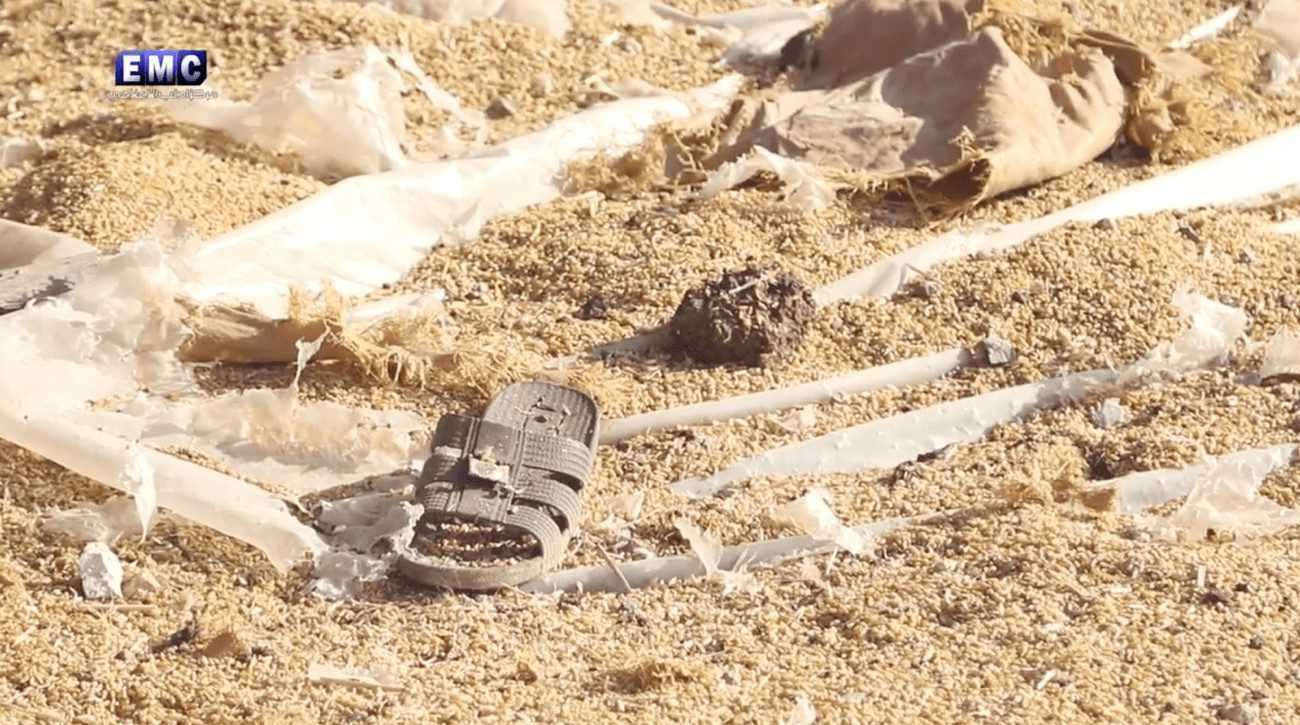‘Systematic’ attacks on hospitals, clinics as pro-government forces bomb Idlib
AMMAN: A barrage of Syrian government and Russian airstrikes across […]
8 February 2018
AMMAN: A barrage of Syrian government and Russian airstrikes across Idlib province this week is crippling the local medical sector as more than one dozen hospitals and clinics remain damaged or closed on Thursday, in what local authorities called “systematic” attacks.
Medical facilities in 13 towns across rural Idlib were either severely damaged or out of service on Thursday as Syrian and Russian warplanes reportedly pummeled the eastern and southern Idlib countrysides with airstrikes and artillery fire, Monzar Khalil, director of Idlib’s opposition-run health directorate told Syria Direct.
“Most of the medical facilities” in the eastern region of Idlib province, where the bombing is most intense, remained “out of service” this week, Khalil said.
Bombardment intensified after rebels reportedly shot down a Russian warplane over rural Idlib province on Saturday. The pilot, who ejected near a village close to Saraqeb, was later killed in a fight with rebels, Russian state media outlet TASS reported.
The pilot “blew himself up with a grenade after being heavily injured and surrounded by terrorists,” according to a statement from the Russian Defense Ministry to TASS.

Later on Saturday, Russian warplanes targeted rebel positions in eastern Idlib province near the site of the downed plane, TASS reported the same day.
Syrian state news outlet SANA did not report the recent uptick in bombardment over Idlib, which continued throughout Thursday.
United Nations officials said they were “concerned for the safety” of residents across Idlib because the ongoing bombardment caused “destruction of civilian infrastructure” including medical facilities and schools, UNOCHA spokeswoman Linda Tom told Syria Direct on Thursday.
Among the destroyed facilities this week was a surgical hospital in Kufr Nubl, a town 34 kilometers south of the provincial capital, that served an estimated 150,000 people, said Dr. Zahed Hanak, a urologist and member of the hospital’s administration.
The hospital is now “out of service,” Hanak told Syria Direct, after suffering “extensive damage” as a result of airstrikes in recent days.
“It was considered one of the most important hospitals” in the area, the doctor added.
In Maarat a-Numan, nine kilometers northeast, “most medical centers” remain closed amid the bombing on Thursday, Dr. Abd al-Razzaq Bayoush, a pediatrician at the town’s central hospital, told Syria Direct.

Bombing on Thursday left at least five civilians dead and 19 injured in the rural Idlib town of Mashmashan “as an initial count,” Civil Defense spokesman Ahmad al-Sheikho told Syria Direct. The previous night, at least 12 people were killed in Maarat a-Numan, al-Sheikho added, with bodies left “charred” by airstrikes there. In videos posted online, Civil Defense volunteers fought overnight to put out fires in the bombed-out remains of buildings inside the town.
“All this [bombing] is resulting in increased pressure on medical facilities,” Khalil, head of Idlib’s health directorate said. “It forced us to reduce medical staff and only take in emergency cases.”
Those in need of intensive care sought out hospitals in northern Idlib province near the Turkish border, where the bombardment was reportedly less intense, Bayoush told Syria Direct.
“There is confusion among Civil Defense teams and ambulance crews, who [oftentimes] can’t find any nearby medical centers to admit the injured,” Bayous said. But transporting victims to medical facilities further north “requires a long time, and threatens the life of the patient.
Beneath the bombardmet on Thursday, both Khalil and Hanak told Syria Direct that the strikes on clinics and hospitals felt like a “systematic” attack on Idlib’s already ill-equipped medical sector.







